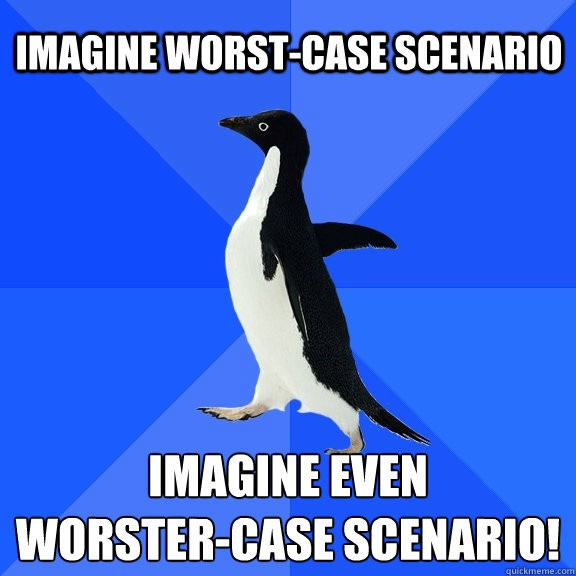Imagine the worst to make faster decisions
When a CEO asks, “How dumb is this idea?” I get worried. First, it depends on the information you have at the time, but more importantly…
When a CEO asks, “How dumb is this idea?” I get worried. First, it depends on the information you have at the time, but more importantly, it usually means the CEO is delaying a decision and nothing is more important to startup success than speed.
Missing information is the TL:DR on why startup CEO is a hard job— you never feel like you have enough information to make the best decision and the search for “more info” can paralyze you and the company. Instead of a bias to more information, imagine the worst possible data for everything you don’t know. If you would still make the same decision or pursue the same strategy, the idea is not dumb; It is probably pretty smart.
I was recently working with a CEO who was struggling to set a strategy without a lot of information. Instead of looking for potential sources of all the information that was missing, we spent a working session really talking about the data we had. Then we imagined that what we knew today was all there was to know — “What would you do if you had complete information — and this was it?”
The decision was obvious.
Next, we made a list of the other things he would like to know if he had access to actual “perfect information.” This is the stuff of nightmares — the things you know you should know to make the best decision but also know you can’t know today (or in time to affect the decision).
We came up with 20+ new things we wish we knew.
Then we pretended all the information we didn’t have was negative/supported making a different decision than the obvious conclusion supported by the data we had.
What would he do? Would he reverse and lead the company in a different direction? Was anything in the “unknown” set so critical to the decision that he would change his mind if he knew it was negative?
Of the 20 or so things we didn’t know, it turned out there wasn’t anything that, if negative, would result in a different decision. He moved forward.
This approach of imagining all the unknowns is valuable whenever you face incomplete information. In this case, knowing more would not change the decision and the framework helped a CEO move forward with confidence. If there is information that would drive a different decision, the framework helps you identify the specific missing information in a very focused way — and begin to understand the resources and time it will take to gather the data — and then decide if delaying your decision is the best choice.
When you make decisions, ask — what if everything I don’t know would support me changing my mind? If you would still do the same thing — keep going.


